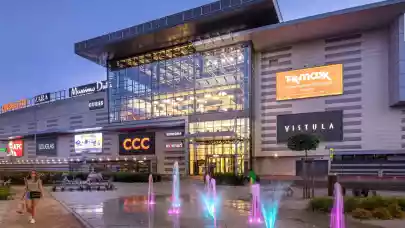
At our Future of Real Estate 2025 conference in Warsaw, a panel of sustainability leaders delivered a compelling message: profitability and environmental responsibility are no longer at odds in real estate. The discussion explored how developers, retailers, and certification experts are navigating the practical realities of green building implementation, from setting decarbonisation targets to overcoming retrofit challenges and engaging tenants. The session highlighted that success hinges on scaling up data-driven interventions, fostering collaboration, and adapting to a rapidly evolving regulatory landscape.
Moderator Eleni Polychroniadou set the tone by challenging participants to explore how businesses can maintain profitability while embedding sustainability into their core operations.
Vessela Valtcheva-McGee from GBCI Europe provided critical market insights, highlighting the transformative potential of green building practices. "Despite political changes and economic uncertainties, we see a substantial and constant allocation of funds towards climate funding," she explained. "China issuing its first sovereign green bond demonstrates that even countries not traditionally bound by green regulations are recognising the importance of sustainable development."
Dominik Uhe from Kaufland shared a pragmatic approach to decarbonization across their extensive retail portfolio. "We started our sustainability journey by setting clear goals, including reducing scope one and two emissions by 80% by 2030," Uhe noted. "Our strategy involves implementing low-hanging fruit solutions like LED lighting, refrigeration door installations, and gradually moving towards more complex interventions like heat recovery and renewable construction materials."
Magdalena Błądek from Apsys Polska emphasised the critical role of tenant engagement in achieving sustainability objectives. "We discovered that only 14% of energy consumption is under our direct control, with over 86% attributed to tenant activities," she revealed. "To address this, we've developed collaborative guidelines and a code of good practices, encouraging tenants to operate their premises more efficiently and align with our environmental goals."



